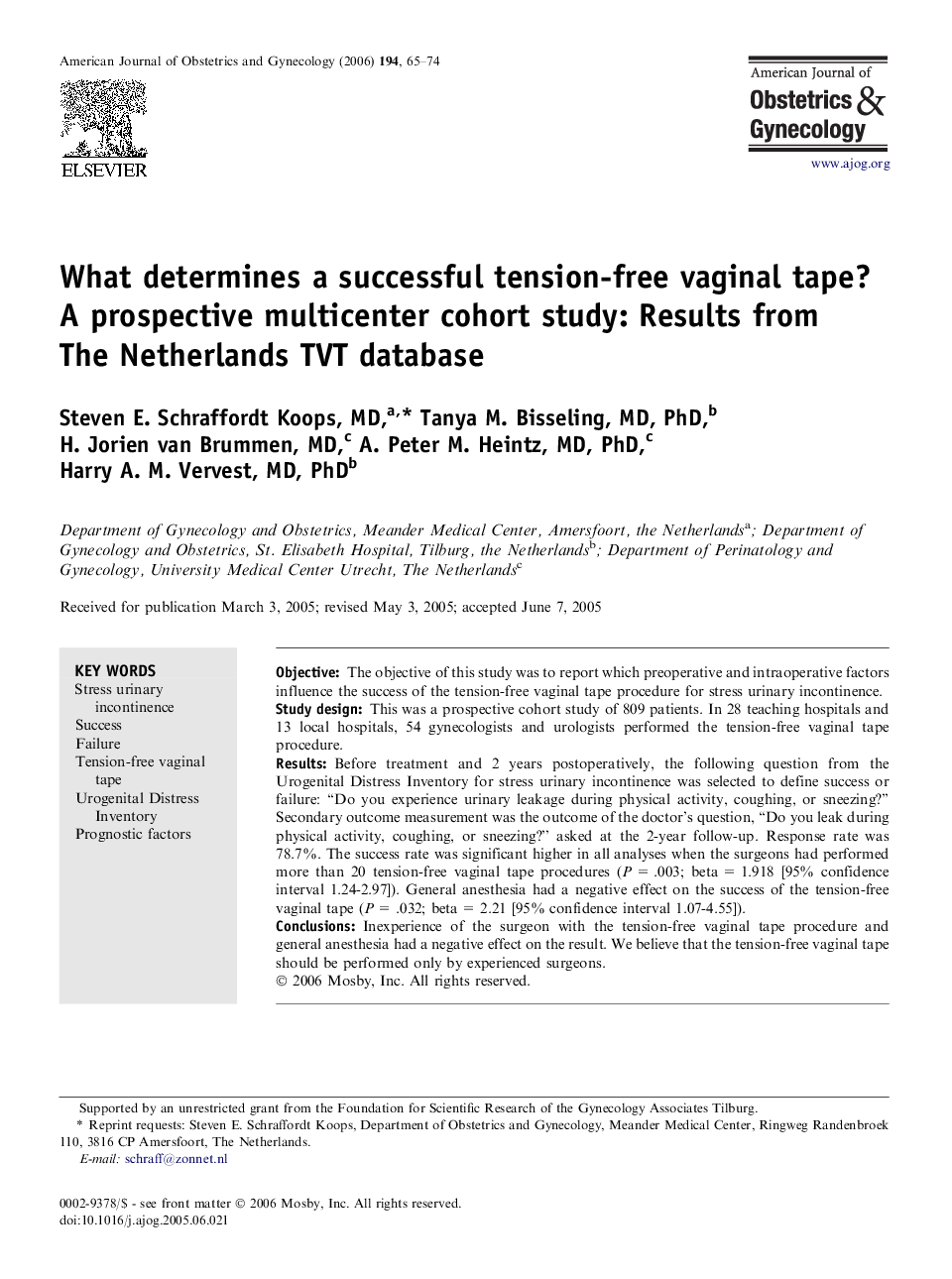| Article ID | Journal | Published Year | Pages | File Type |
|---|---|---|---|---|
| 3442212 | American Journal of Obstetrics and Gynecology | 2006 | 10 Pages |
ObjectiveThe objective of this study was to report which preoperative and intraoperative factors influence the success of the tension-free vaginal tape procedure for stress urinary incontinence.Study designThis was a prospective cohort study of 809 patients. In 28 teaching hospitals and 13 local hospitals, 54 gynecologists and urologists performed the tension-free vaginal tape procedure.ResultsBefore treatment and 2 years postoperatively, the following question from the Urogenital Distress Inventory for stress urinary incontinence was selected to define success or failure: “Do you experience urinary leakage during physical activity, coughing, or sneezing?” Secondary outcome measurement was the outcome of the doctor's question, “Do you leak during physical activity, coughing, or sneezing?” asked at the 2-year follow-up. Response rate was 78.7%. The success rate was significant higher in all analyses when the surgeons had performed more than 20 tension-free vaginal tape procedures (P = .003; beta = 1.918 [95% confidence interval 1.24-2.97]). General anesthesia had a negative effect on the success of the tension-free vaginal tape (P = .032; beta = 2.21 [95% confidence interval 1.07-4.55]).ConclusionsInexperience of the surgeon with the tension-free vaginal tape procedure and general anesthesia had a negative effect on the result. We believe that the tension-free vaginal tape should be performed only by experienced surgeons.
